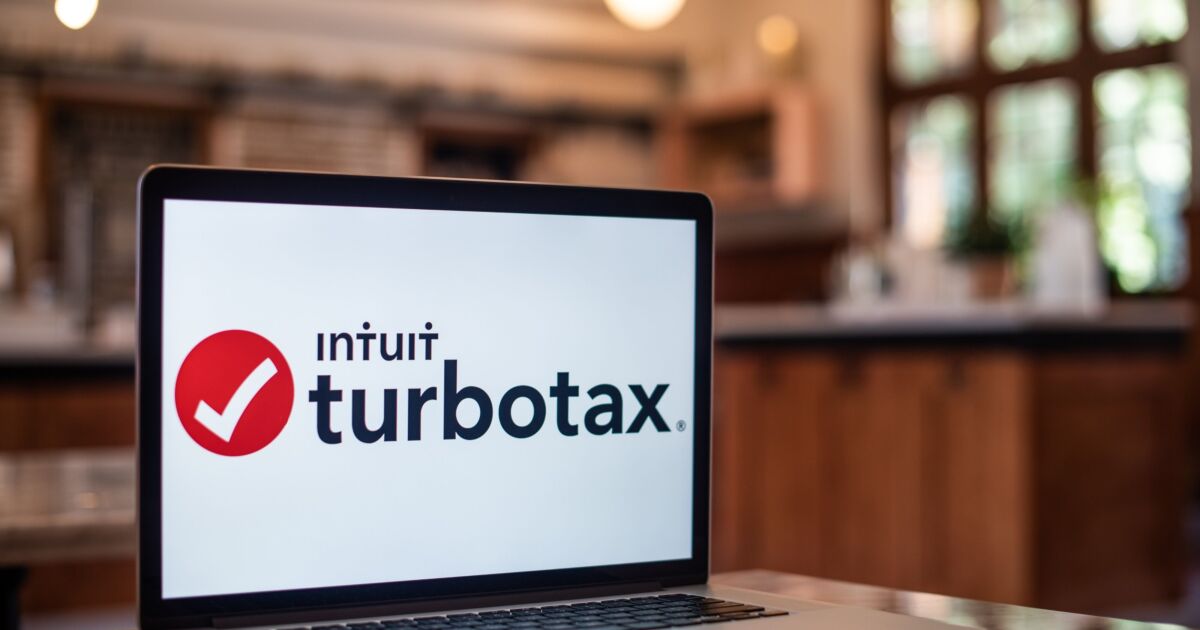Accounting
Tax Fraud Blotter: Covers blown
Published
2 weeks agoon

$300 a scam; dead wrong; permanent problem; and other highlights of recent tax cases.
Lansing, Illinois: Tax preparer Vervia Watts has been sentenced to a year and a day in prison for preparing and filing false income tax returns for clients.
Watts, who
Watts received at least $300 for each return; the IRS paid some $1.3 million in fraudulent refunds.
She was also ordered to serve a year of supervised release and to pay some $1,349,314 in restitution to the IRS.
Lakewood, New Jersey: Executive Josef Neuman has been sentenced to 30 months in prison for failing to pay more than $10 million in payroll taxes stemming from his ownership of several businesses.
Neuman, who previously pleaded guilty, was the CEO of a business that provided administrative services to operators of nursing homes and other health care facilities, including at least some 20 entities co-owned and operated by Neuman. He had responsibility for the companies’ federal payroll taxes.
During tax years 2017 and 2018, Neuman failed to pay over to the IRS more than $10 million in payroll taxes owed by the companies. He knew that payroll taxes were due but continued to pay other business expenses and employee salaries.
He was also sentenced to two years of supervised release and ordered to pay $11.2 million in restitution.
Medford, Massachusetts: Business owner Mauricio Baiense, formerly of Quincy, Massachusetts, has pleaded guilty to an employment tax scheme and to making a false statement at an Occupational Safety and Health Administration hearing.
Baiense owned and operated Contract Framing Builders and was responsible for paying to the IRS the payroll taxes withheld from employees’ wages and for filing the quarterly employment tax returns. From around April 2013 through December 2017, he operated an off-the-books cash payroll for the company.
To generate cash for the payroll, Baiense wrote checks drawn on CFB’s bank account to purported subcontractors, which were in fact nominee entities that Baiense controlled. Baiense then cashed or directed others to cash approximately $11 million in such checks at a check-cashing business. Baiense and another man then used a portion of the cash to pay some employees’ wages.
Baiense did not report the cash wages to the IRS and did not pay the required employment taxes. He also helped prepare at least one false employment tax return that underreported the wages paid to employees. The federal tax loss totaled some $2,824,577.45.
When questioned at an OSHA hearing regarding a workplace accident, Baiense also made a false statement. OSHA was investigating the workplace death of an individual working for CFB; Baiense lied that the employee did not work for CFB at the time of the accident.
Sentencing is July 25. He faces a maximum of five years in prison for each of the seven counts of willful failure to collect or pay over employment taxes, five years for conspiring to defraud the U.S. and three years for aiding and assisting in the preparation of a false return. He also faces up to five years in prison for the false statement.

Ramsey, Minnesota: Tax preparer Lyle Nierenz, 70, has been sentenced to six months in prison to be followed by a year of supervised release and been ordered to pay restitution for operating a tax prep business as cover for a tax fraud.
Nierenz, who pleaded guilty in 2021, ran Fast-R-Tax and Lyle’s Tax Service out of his home. He prepared and filed numerous income tax returns falsely claiming that his clients had significant charitable contributions, unreimbursed employee expenses or unreimbursed business expenses. Nierenz, who did this without his clients’ knowledge or permission to fraudulently inflate their returns, then diverted a portion of the refunds to his personal bank accounts.
Nierenz repeatedly made it appear that his clients self-filed their fraudulent returns and provided many clients with a doctored copy of their returns that matched the refund the client received. Between tax years 2014 and 2018, his scheme resulted in a tax loss of some $336,000.
He also repeatedly failed to declare on his own returns the income he generated by charging his clients for tax prep.
Milroy, Pennsylvania: Insurance business owner Brandon Aumiller has been convicted of tax evasion for his years-long scheme to evade individual income taxes and his business’ employment taxes.
For tax years 2007, and 2009 through 2011, Aumiller filed personal income tax returns reporting that he owed some $82,311 in income taxes. He also filed employment tax returns for his business reporting that it owed some $24,882 in taxes for the third quarter of 2013 and the first two quarters of 2014. He did not pay these assessments.
When the IRS attempted to collect, Aumiller engaged in a multiyear scheme to conceal assets in accounts that he did not disclose to the IRS, structuring multiple real estate deals to conceal the transactions; he also submitted forms that did not fully disclose his accounts and that concealed information about his real estate transactions.
Sentencing is Sept. 4. He faces up to five years in prison on each of the two counts of his conviction.
Kansas City, Missouri: Tax preparer Linzell Harris, 67, has pleaded guilty to aiding the preparation of dozens of false returns.
Harris owned and operated the tax prep business MJM Group from 1999 through 2022. He admitted that he exaggerated and fabricated multiple deductions and credits for his clients to obtain large refunds. Harris prepared returns for at least 12 taxpayer clients, resulting in at least 43 false income tax returns for tax years 2015 through 2019.
Harris also failed to file personal tax returns for 2015 and 2016, causing a tax loss of $60,753. The total tax loss was $185,061.
He faces up to three years in prison.
Quincy, Massachusetts: Business owner Lilian Giang, of Randolph, Massachusetts, has been convicted in connection with her involvement in avoidance of payroll tax.
She was convicted of four counts of failing to collect and pay over taxes and one count of mail fraud.
Between 2015 and 2019, Giang owned and operated Able Temp Agency, a temporary employment agency. Client companies paid Able for the temp employees’ work on an hourly basis. Giang deposited those payments into bank accounts in the name of Able that she controlled and then paid the employees through a combination of checks and cash.
By using cash payments, Giang hid over $3.2 million in payroll and avoided paying more than $800,000 in payroll taxes. She also used false payroll numbers to obtain workers’ compensation insurance at lower premium rates.
The charge of mail fraud provides for up to 20 years in prison, three years of supervised release, a fine of $250,000 or twice the gross gain or loss, whichever is greater, restitution and forfeiture. The charge of failure to collect or pay over taxes provides for up to five years in prison, three years of supervised release, a fine of $10,000 and restitution.
You may like
Accounting
EV makers win 2-year extension to qualify for tax credits
Published
2 weeks agoon
May 4, 2024

The Biden administration gave carmakers a partial reprieve in finalizing electric-vehicle tax credit rules intended to loosen China’s grip on battery materials crucial to the car industry’s future.
Starting in 2025, plug-in cars containing critical minerals from businesses controlled by U.S. geopolitical foes, including China, will be ineligible for up to $7,500 tax credits, the Treasury Department said Friday. Automakers will get an extra two years, however, to shore up sourcing of graphite and other materials considered difficult to trace to their origin.
The rules put finishing touches on President Joe Biden’s push to develop an alternative to China’s preeminent EV and battery supply chains. The administration is imposing stringent sourcing requirements for raw materials and components in order for electric cars to qualify for the tax credits that are a powerful draw for consumers otherwise put off by
“These actions provide a strong signal to automakers that we want to see EVs built here in America with components and critical minerals sourced from the U.S. and our allies and partners,” White House Climate adviser John Podesta said.
The two-year exemption speaks to the challenges automakers have had reducing their reliance on Chinese suppliers of materials such as
The Biden administration’s rules don’t allow tax breaks for vehicles with batteries containing critical minerals from foreign entities of concern, a term referring to businesses controlled by US geopolitical foes such as China, North Korea, Russia and Iran. Those requirements take effect in 2025, as proposed.
But Biden has given auto and battery manufacturers some flexibility on this front, too.
Automakers will now have until 2027 to curb the use of certain difficult-to-trace materials from FEOCs, provided that they submit plans to comply after the two-year transition and it’s approved by the government, the Treasury Department said.
“FEOC exemptions for any battery materials should be temporary,” said Abigail Hunter, the executive director of the Center for Critical Minerals Strategy at SAFE, a Washington think tank. “We need a clear exit strategy, lest we continue our dependencies on adversaries and further undermine the competitiveness of U.S. and allied critical minerals projects.”
The rules release concludes two years of work on requirements that already have reduced the number of EVs eligible for tax credits. About 20 models qualify today, compared to as many as 70 previously. Treasury Department officials said Friday they expect the number of qualifying vehicles to continue to fluctuate as companies adjust their supply chains.
Automakers including Tesla Inc., General Motors Co. and Toyota Motor Corp. have lobbied for additional flexibility to meet requirements. A lobby group representing automakers based outside the US praised the additional two years provided for the difficult-to-trace materials.
“It will take time for the global production and sourcing of graphite and other critical minerals needed to produce EVs to match the strict standards required by automakers,” Autos Drive America President Jennifer Safavian said in a statement.
Accounting
Oregon senator Ron Wyden demands refunds for TurboTax customers over glitch
Published
2 weeks agoon
May 4, 2024
Senate Finance Committee Chairman Ron Wyden, D-Oregon, demanded
The glitch,
“Fixing this error will require identifying all affected Oregonians, notifying them, and ensuring they can be made whole,” said the senator. “In part because of TurboTax’s various guarantees and market share, Oregonians who overpaid due to TurboTax’s error likely assumed the software opted them into claiming state standard deduction to minimize their taxes. That assumption was wrong. And because the vast majority of taxpayers understandably dread filing season and avoid thinking about taxes after it ends, many of those affected will not learn on their own that they overpaid. Intuit must act to inform them and help them get the full tax refunds they are entitled to receive.”

Tiffany Hagler-Geard/Bloomberg
An Intuit spokesperson said the company is currently working to resolve the issue, referencing their tax return lifetime guarantee.
“As part of our
The senator has also asked Intuit for an explanation of how this glitch happened in the first place, as well as an approximate timeline for the steps it took once it became aware of it. He has also asked for a count of precisely how many people were affected, as well as Intuit’s plans for both addressing this problem and what the company will do to prevent it in the future.


RSM US named its first enterprise client experience leader; the Financial Accounting Foundation is looking for nominees for its Financial Accounting Standards Advisory Council; RKL named a new office managing partner; REDW appointed three new vice presidents; and other firm and personnel news from across the accounting profession.

Betting on the Kentucky Derby? Here’s how to think like a professional handicapper.

Warren Buffett says Greg Abel will make Berkshire Hathaway investing decisions when he’s gone

EV makers win 2-year extension to qualify for tax credits

Are American progressives making themselves sad?

‘Best Firms for Tech’ 2024 deadline extended to April 10

